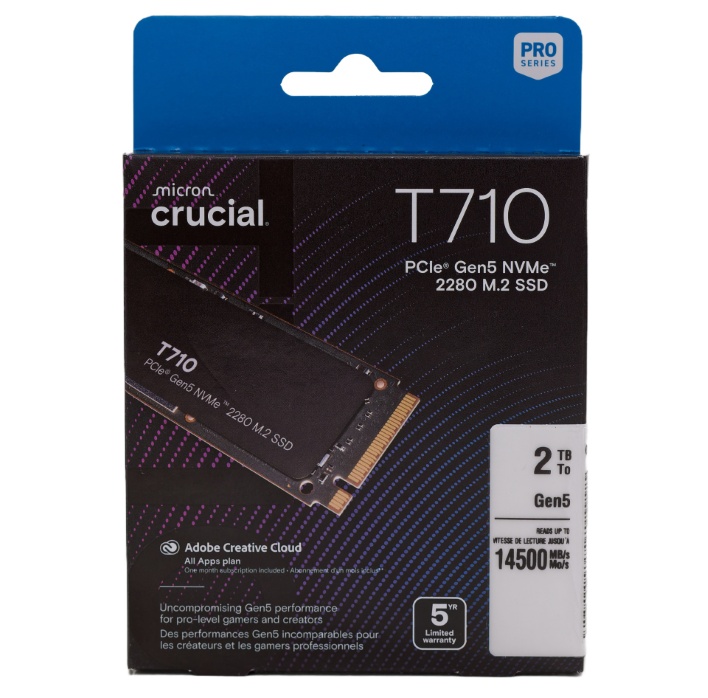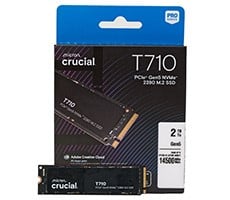Crucial T710 SSD Review: A Low-Power PCIe Gen 5 Speed Demon
HDTune Pro v6.1 Benchmarks
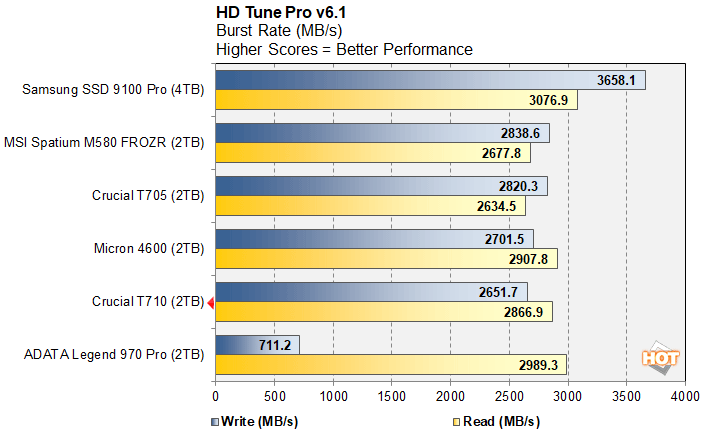
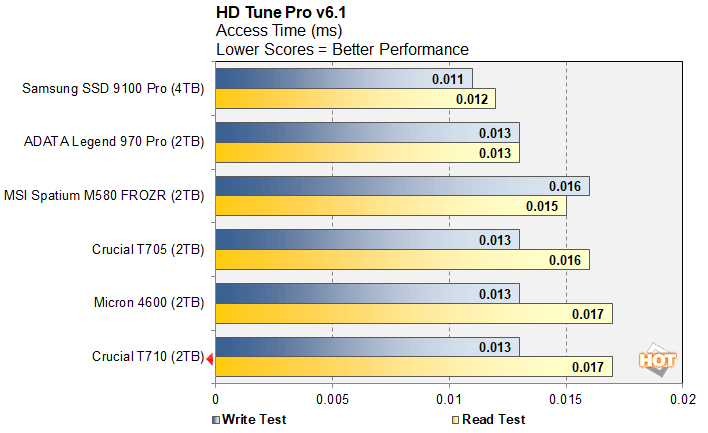
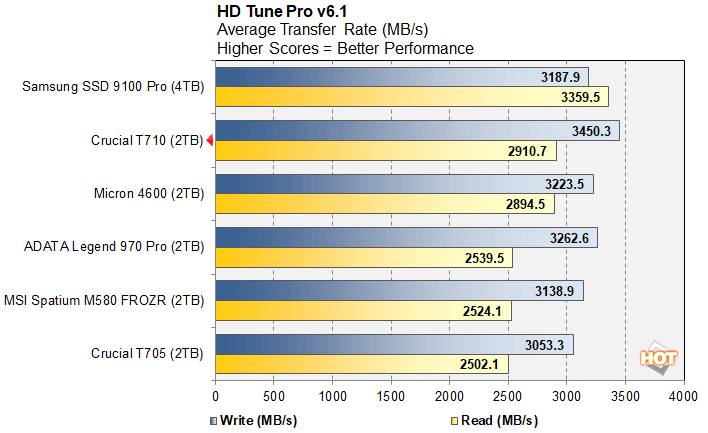
CrystalDiskMark x64 Benchmarks
CrystalDiskMark is a synthetic benchmark that tests both sequential and random small and mid-sized file transfers using incompressible data. It provides a quick look at best and worst case scenarios with regard to SSD performance, best case being larger sequential transfers and worse case being small, random transfers.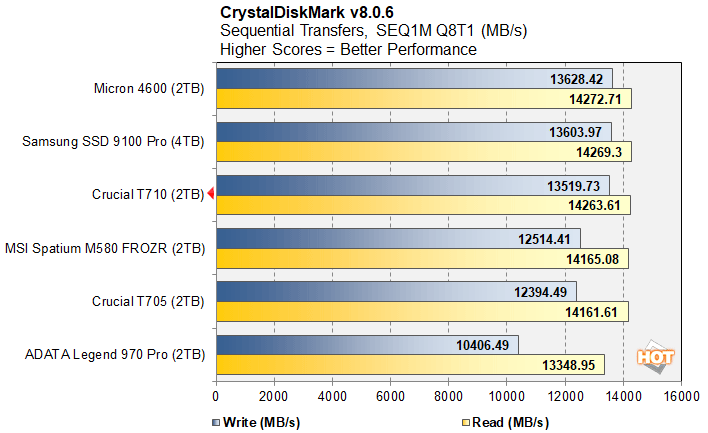
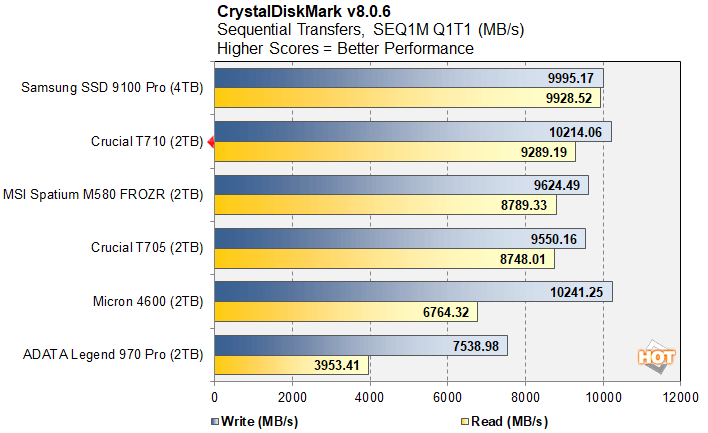
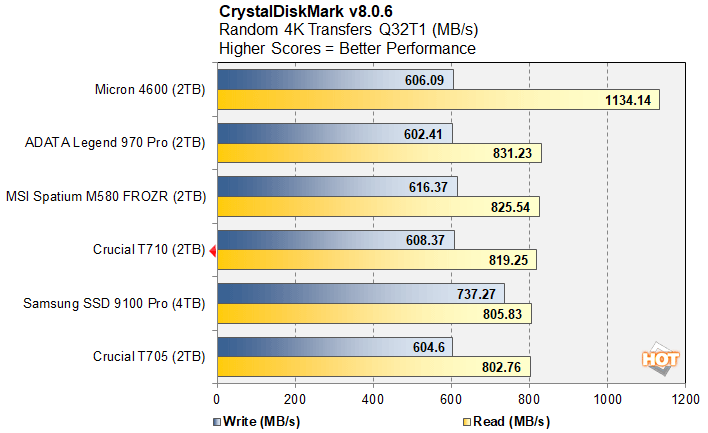
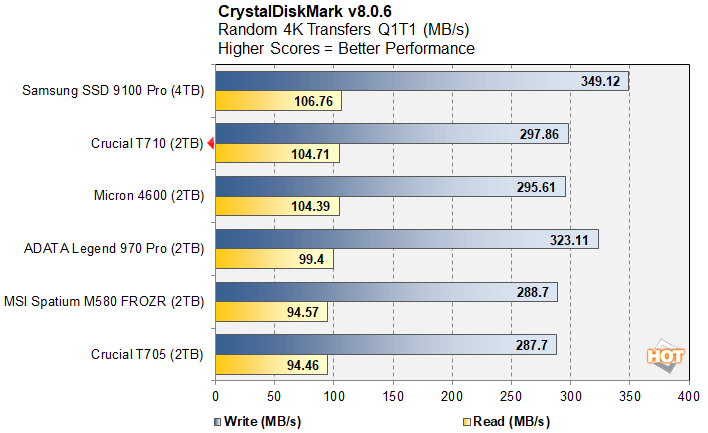
The Crucial T710's performance in CrystalDiskMark's random transfer tests was also very good. In the Q32T1 test it was tightly grouped right in the middle of the pack and in the important Q1T1 test it had the second fastest reads overall, with the third fastest writes.
Final Fantasy XIV: Dawntrail Game Level Load Times
We also tested game level load times using the Final Fantasy XIV: Dawntrail benchmark. This tool loads an array of different game levels during its graphics benchmark and outputs the average result when complete.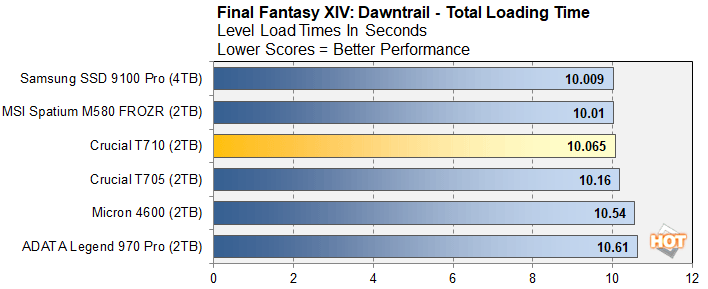
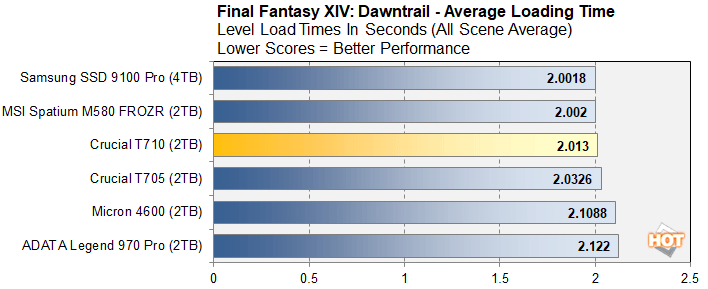
Level load times in Final Fantasy XIV: Dawntrail were very good with the Crucial T710. In this test, the Crucial T710 technically lands in the middle of the pack, but is within tiny a fraction of the a second of some of the fastest Gen 5 drives currently available and within the margin of error for this benchmark.
UL's 3DMark Gaming Storage Benchmark
UL recently added a gaming-centric storage benchmark to 3DMark that leverages trace-based tests of actual PC games and gaming-related activities (such as streaming with OBS) to measure real-world gaming performance in a variety of scenarios. The tests include things like loading Battlefield V, Call of Duty: Black Ops 4, and Overwatch from the initial launch to the main menu, recording a 1080p gameplay video at 60 FPS with OBS while playing Overwatch, installing The Outer Worlds and saving game progress. And finally, copying the Steam folder for Counter-Strike: Global Offensive from one drive to another.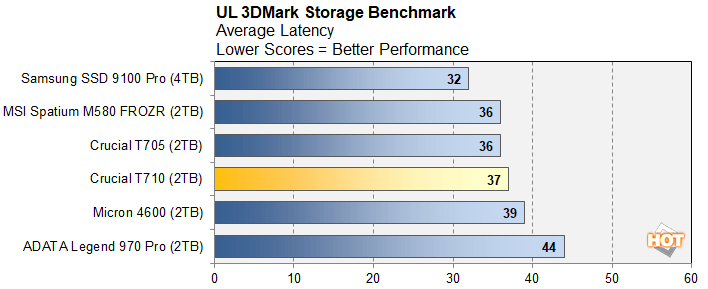
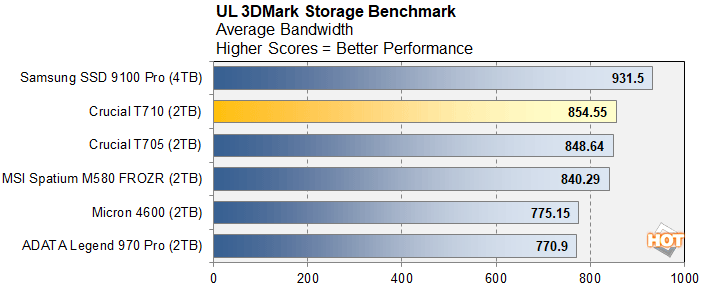
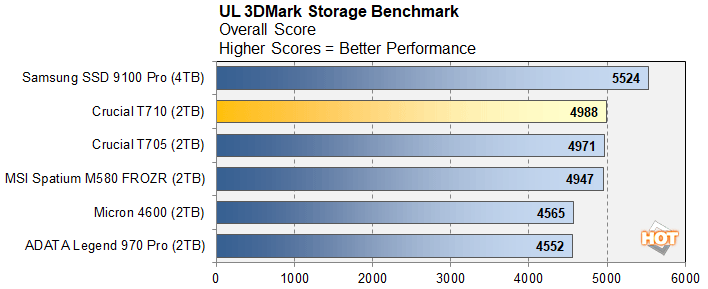
The Crucial T710's performance in the 3DMark storage benchmarks are mixed. It's average latency was just a touch higher than some of the other drives, but its average bandwidth was the second best, which landed it in second place just behind the Samsung SSD 9100 Pro.
UL's PCMark 10 Quick System Drive Storage Test
We like PCMark 10's new quick storage benchmark module for its real-world application measurement approach to testing. PCMark offers a trace-based measurement of system response times and bandwidth under various scripted workloads of traditional client / desktop system use cases.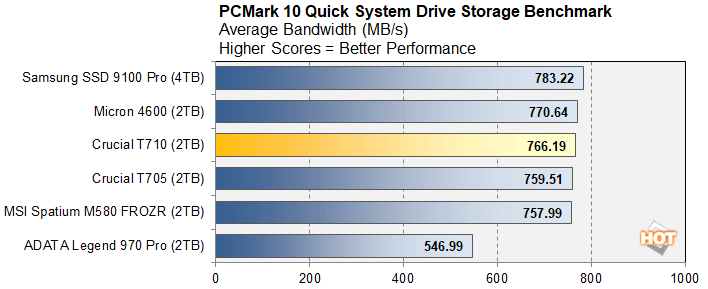
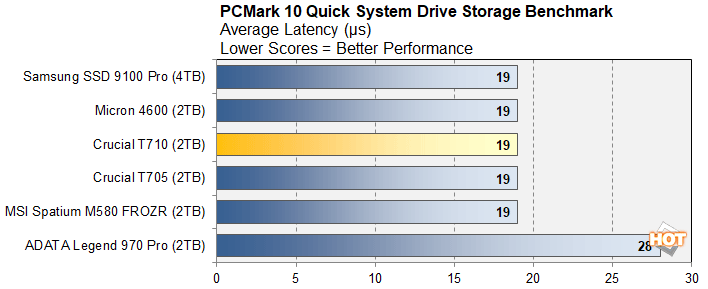
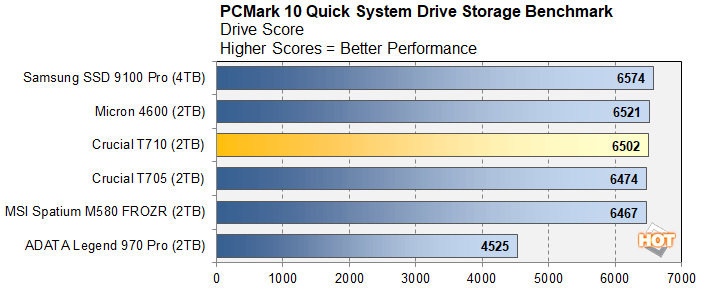
In PCMark's trace-based tests, the Crucial T710 was competitive with the fastest drives we've tested, and it outruns the T705, but technically lands just above the middle of the pack.
Crucial T710 SSD Review: Closing Thoughts
The Crucial T710’s performance is competitive with some of the best all-around PCIe Gen 5 consumer SSDs currently on the market. Micron brings its own bleeding-edge NAND flash to a low-power Silicon power controller with excellent results. The Crucial T710 offers highly competitive, top performance in virtually every category and it does it at lower power than the more pervasive Phison E26-based drives on the market currently, like the T710’s predecessor, the Crucial T705.
The single-sided PCB configuration and combination of low power and high performance makes the Crucial T710 well-suited to a wide array of systems, including laptops and game consoles. The PCIe Gen 5 SSD market is much more competitive today than it was just a few months ago, but the Crucial T710 can trade blows with the best of them. This SSD's pricing, however, is a bit on the high side. MSRPs for the 1TB, 2TB, and 4TB models are $179, $279, and $549, respectively (add $20 bucks for the heatsink). For reference, the Samsung 9100 Pro is available for $239 in a 2TB capacity. That said, we suspect street pricing may move southward once availability of the T710 ramps up.
The bottom line: If you’re building a top-end system and want one of the fastest, M.2 SSDs out there, the Crucial T710 should be among your top considerations.


